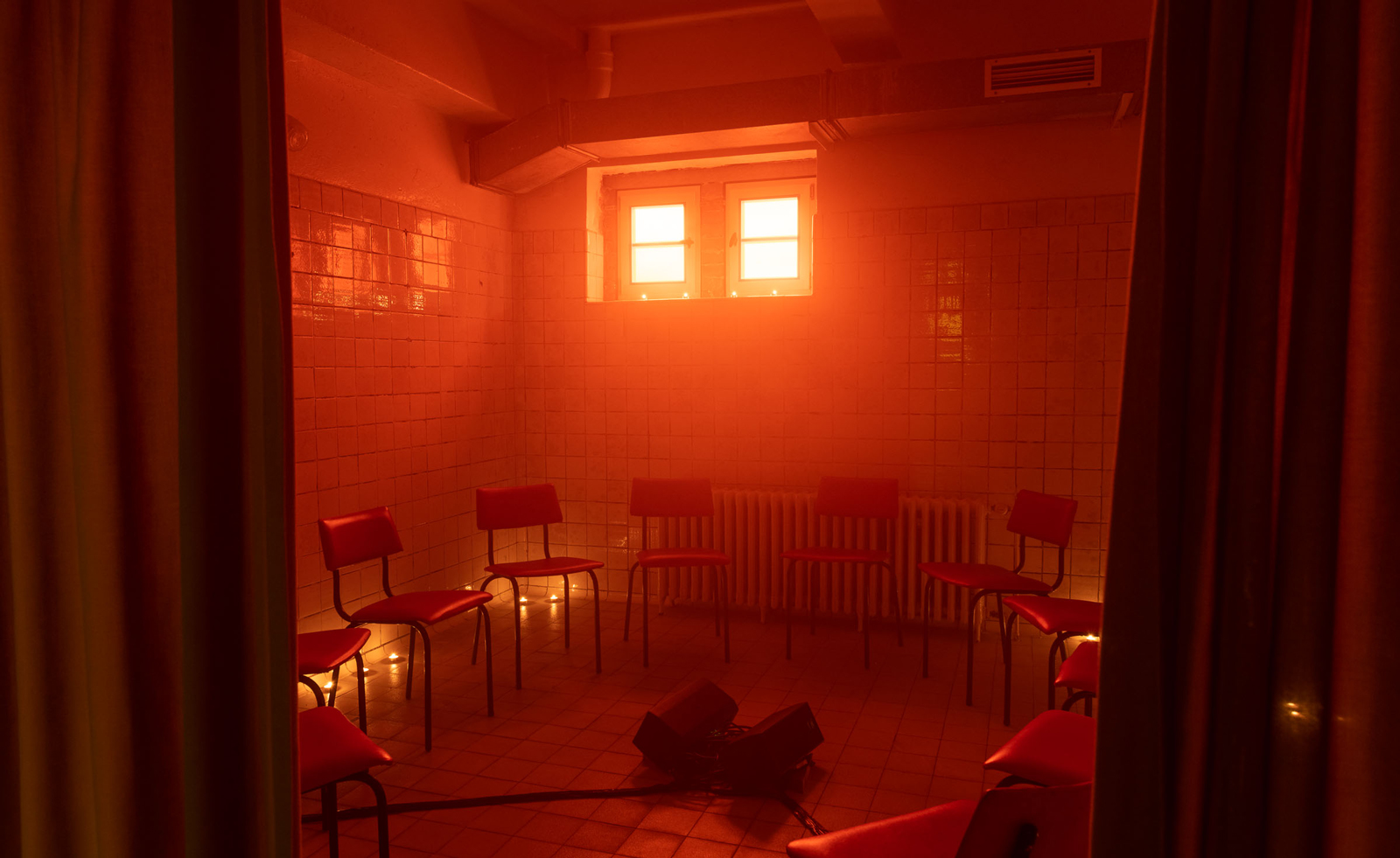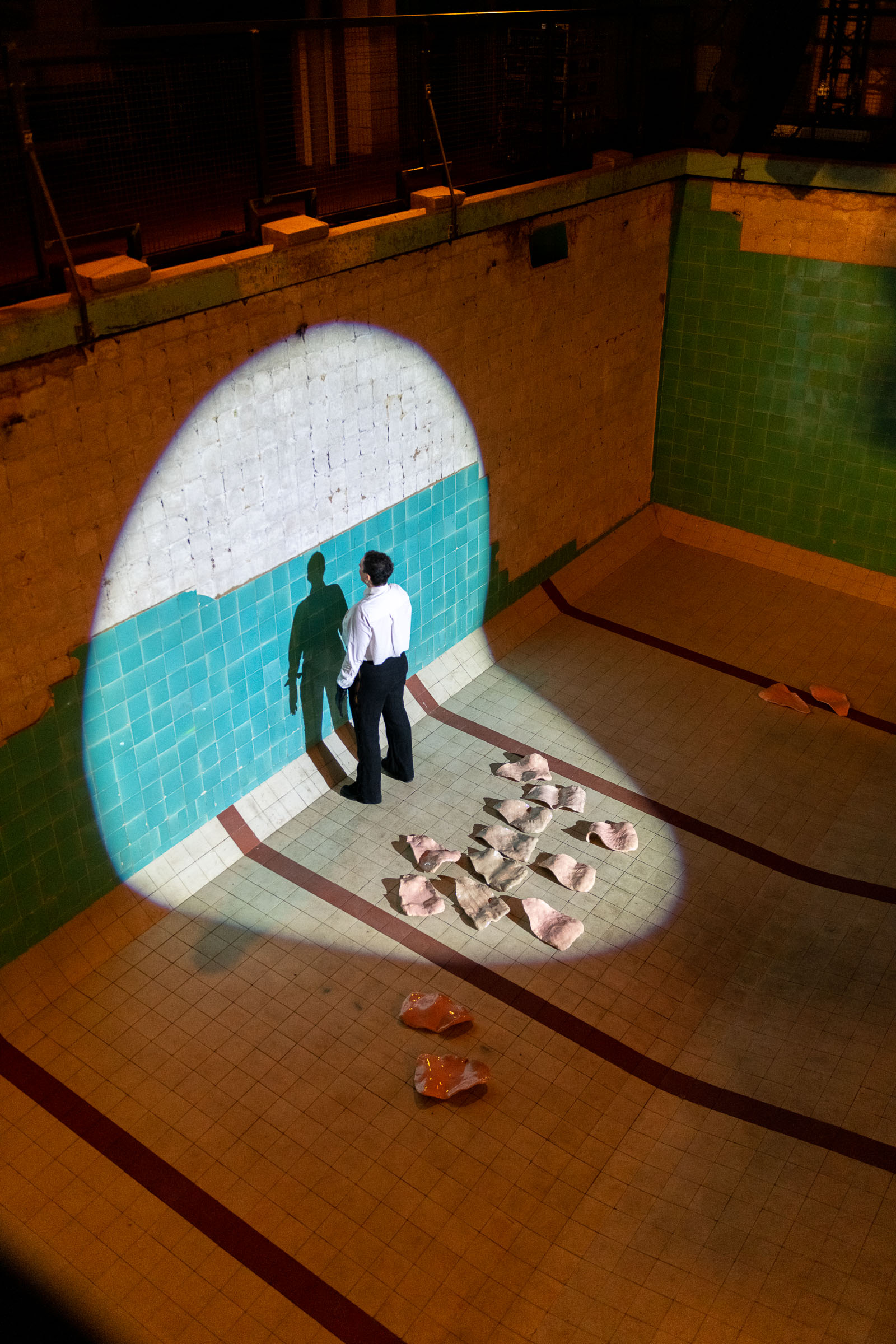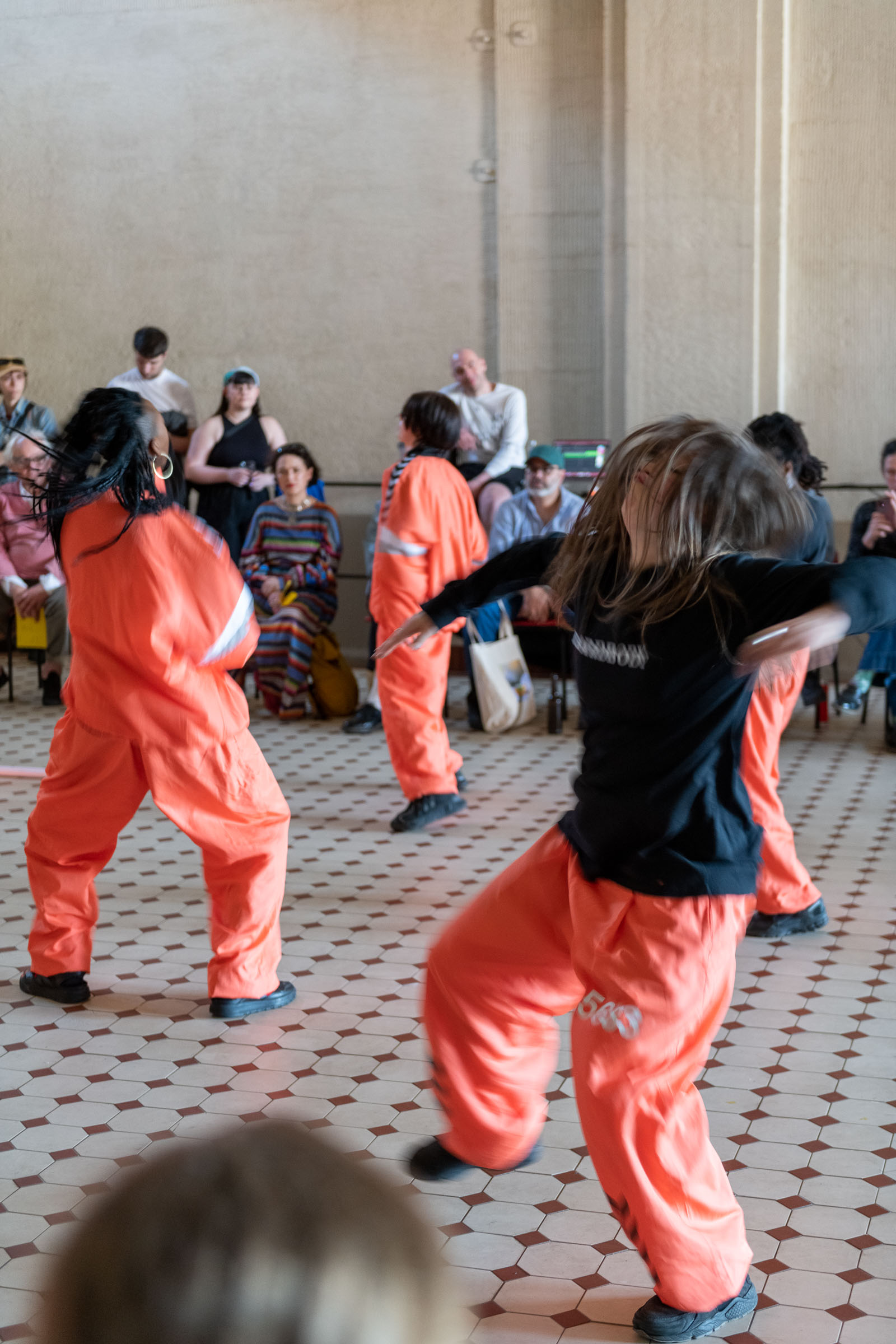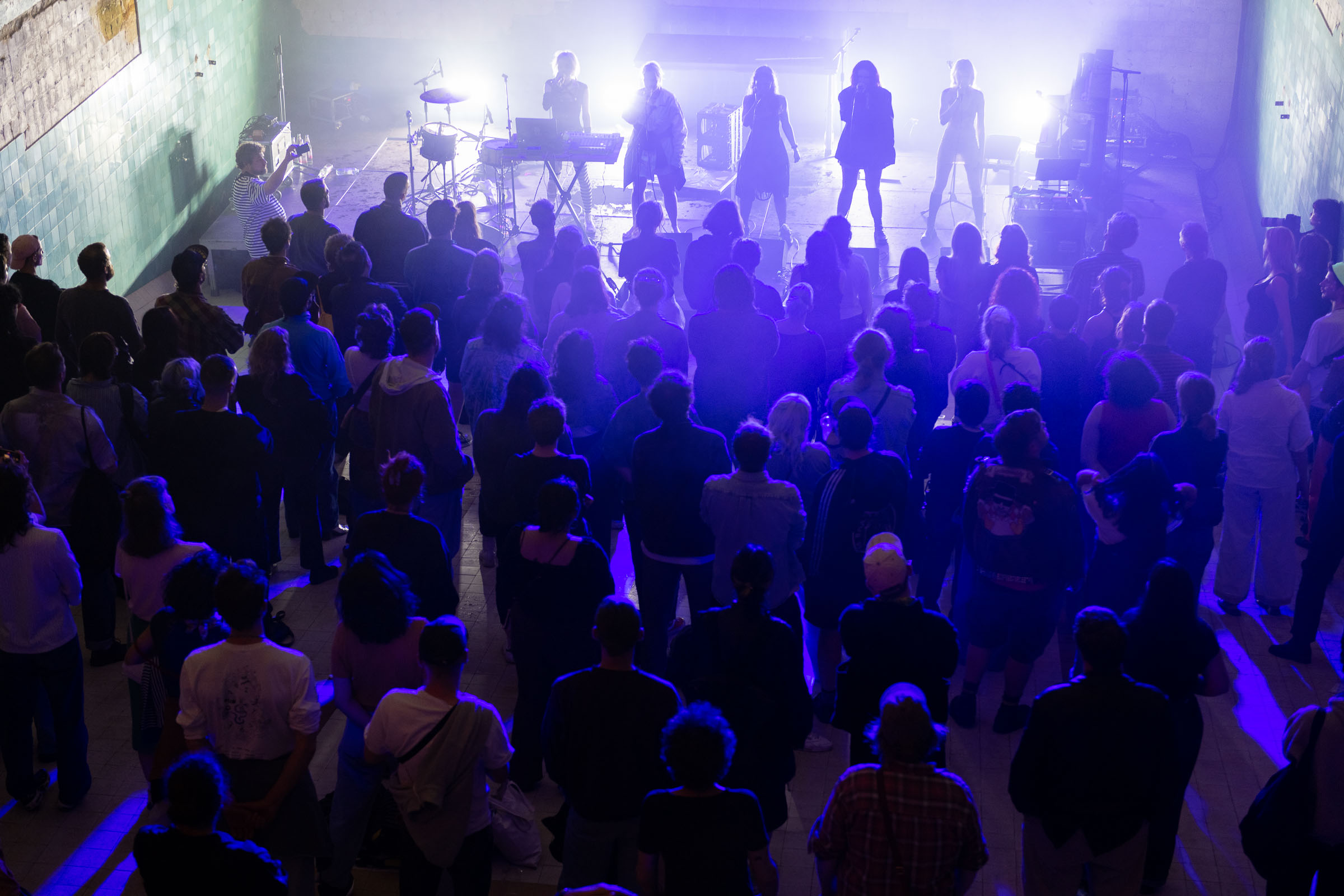
When I arrived at E-WERK Luckenwalde, a former power station half an hour on a train south of Berlin, the place was quiet. Eerily so, for a site soon to open a performance art festival headlined with raucous angst from Pussy Riot. I had been here before, so knew my way around the campus, comprising the power station, the town’s former swimming pool, and the variety of ancillary pavilions and buildings that E-WERK Luckenwalde’s founders – artist Pablo Wendel and curator Helen Turner – had transformed into spaces for experimental culture.
Like me, Wallpaper* had also previously visited. In 2019, when E-WERK Luckenwalde opened with a bang, writer Emma O’Kelly was told by Wendel that the project would be ‘offering art as a power supply’. I confidently strolled straight up the entrance steps of Stadtbad, the swimming pool, and through the double doors to encounter the light-filled Bauhaus hall empty other than for a musician at a piano, filling the space with delicate notes. Immediately, I took out my camera and started recording, a kneejerk reaction to a space and situation I was totally at ease and familiar with. As I completed my panning video, the musician stopped playing to say ‘hello’. I replied, said it was beautiful, then left.
‘Tell Them I Said No’, the title of the two-day festival, was an eclectic mix of performance, workshops, and discussion. Taking its title from an essay series by Martin Herbert, considering artists who had withdrawn from or rejected an art-market-focused art world, the festival – programmed by Turner and freelance senior curator Katharina Worf – sought to explore modes of separation, sustenance and survival.

Hettie Judah, curator of the current touring exhibition ‘Acts of Creation: On Art and Motherhood’, spoke about the lack of space in a competitive, precarious and constraining art world for caregiving, parents and those who don’t want to conform to a rigid capitalist rhythm. Florence Peake nestled her crotch into that of life- and art-partner Eve Stainton, and without separating, the entangled two then manoeuvred up and down the emptied swimming pool slope for Practice 1, a performance of support, struggle and anxiety that for all its poetic poise, always seemed on the edge of serious injury.
In a discussion on expectations upon being an artist and making work, and the compression into or fight away from conforming neoliberal tendencies, Abbas Zahedi spoke beautifully about his practice as a performance poet in relation to former employment as a medic and community worker. In the art world, Zahedi considers himself a ‘participatory ethnographer’, an outsider less interested in sculpting utopia than engaging with concerns. ‘People think that galleries are where you go and look at things,’ the performer said, then asked ‘but how does that space get converted into something that's more about witnessing, and how can I engender that within the work itself, or require that from the institution or audience?’

Eglė Budvytytė’s workshop in collaboration with Fernanda Muñoz Newsome, Some Were Dragged, Some Were Carried, also spoke to the body unceremoniously being taken through space. Training how a pair can alternatively support the movement of another, the work draws inspiration from how authorities drag disobedient bodies away from sites of protest, but here transforms into mutual support and tenderness. Within E-WERK Luckenwalde’s geodesic dome, Asad Raza’s workshop also explored co-dependency and nurture, but with soil – his session training participants how to create a neo-soil, and through it more deeply understand ecosystems and relationships.
On the second day I needed to step away. The football team I had supported for 30 years were playing an important final game of the season in which they could get promoted to the English Premier League. Holed away in Wendel’s office with my laptop and two cans of beer, I watched Ipswich Town’s 2-0 followed by a pitch invasion and outpouring of collective joy. I was happy, though only felt a profound sadness, thinking of how my father would have been so full of life today had prostate cancer not taken him. At that moment, I didn’t want to be staring at a laptop in Luckenwalde, but in that Ipswich crowd reliving memories for and with my father. A sense of grief I don’t think I had felt in the eight years since he died was building inside.
Back in the power station’s Turbine Hall, SERAFINE1369 presented IV, a dance work lasting for one exact hour. Like a spoken clock, each minute was read out over a glitchy, hauntological soundtrack that conjured the mechanics of the building’s past. Instead of machinery, four dancers adhered to chronological order, then tried to break from it, floating between collaboration and independence before an equilibrium of freedom was found. I held back my tears, just.
After it ended, I tried talking to people about Ipswich’s promotion, its memories and sense of loss, and how witnessing such pleasure could fill me with an empty pain. But, unsurprisingly, the exploits of a small Suffolk football team didn’t seem that important to the down-from-Berlin art crowd, and so I kept it inside, carrying on with the festival programme, staying just on the edge. Regardless, I thought to myself, what I was feeling was sadness, and there are far bigger issues right now in the world.
A panel of Lamis Ammar, Candice Breitz and Zoë Claire Miller discussed Gaza within a world of grief, the art world’s response, and the delicate situation of funding and free speech in Germany – a situation that makes E-WERK Luckenwalde’s political event not only an act of bravery, but perhaps one of defiance. ‘I think there is definitely fear,’ Turner said, ‘but what is the point of having a cultural institution if you can't keep it open and invite people to have discourse – I think that is the priority above everything else.’

The final hours of the event comprised performances in the Stadtbad, the empty pool’s slope and two tiers of balconies, creating a perfect auditorium not only for headliners Pussy Riot, but the preceding acts. ‘I got an email that said when life gives you lemons…’ Abbas Zahedi says in his audio-visual performance, using the fruit as a vehicle to explore trauma, time and ancestry. ‘I have been told that speaking of the past is bad form, improper etiquette, so I speak of lemons instead,’ and in speaking through lemons Zahedi turned the Stadtbad into a space of collective grief – for his neighbours from Grenfell, for ancestors we never met, for strangers and for family.
Then, Jjjjjerome Ellis came on to perform the poetic Aster of Ceremonies. Clearly anxious, Ellis spoke of stuttering from a young age and how it is now folded into the artist’s identity, work and name. They read: ‘The art of the stutter is to give away being on time, the art of the stutter is to utter in time, not on time.’ Ellis owns the stutter, and all the personal trauma it carries, then uses it to empower a broader memory of Black and disabled people, using it as a tool to appropriate the language of escaped slave adverts to speak to timeless trauma and grief.
When they sat at a piano to put words to music, I immediately realised that it had been Ellis’ rehearsal I had so arrogantly walked in on and started filming. A sense of regret struck me. Who was I to have imposed myself into the space yesterday, immediately start filming them, extract that beauty then leave? I began to listen deeper, thinking of not only Ellis’ connected ideas of taking loss and grief to rebuild and renew, but all the other ways these themes were woven into modes of opposition, conversation, creativity and network over ‘Tell Them I Said No’. And in that moment of witnessing, my own grief didn’t feel trapped or interior, but as a tiny part of a wider, shared sense of loss, one of acknowledged vulnerability and with a potential to create new kinds of collective power if considered with care.
‘The Drop Out: Tell Them I Said No’ at E-WERK Luckenwalde in 2024
Supported by the Kulturstiftung des Bundes (German Federal Cultural Foundation), Beauftragte der Bundesregierung für Kultur und Medien (Federal Government Commissioner for Culture and the Media, Canada Council for the Arts and the City of Luckenwalde







